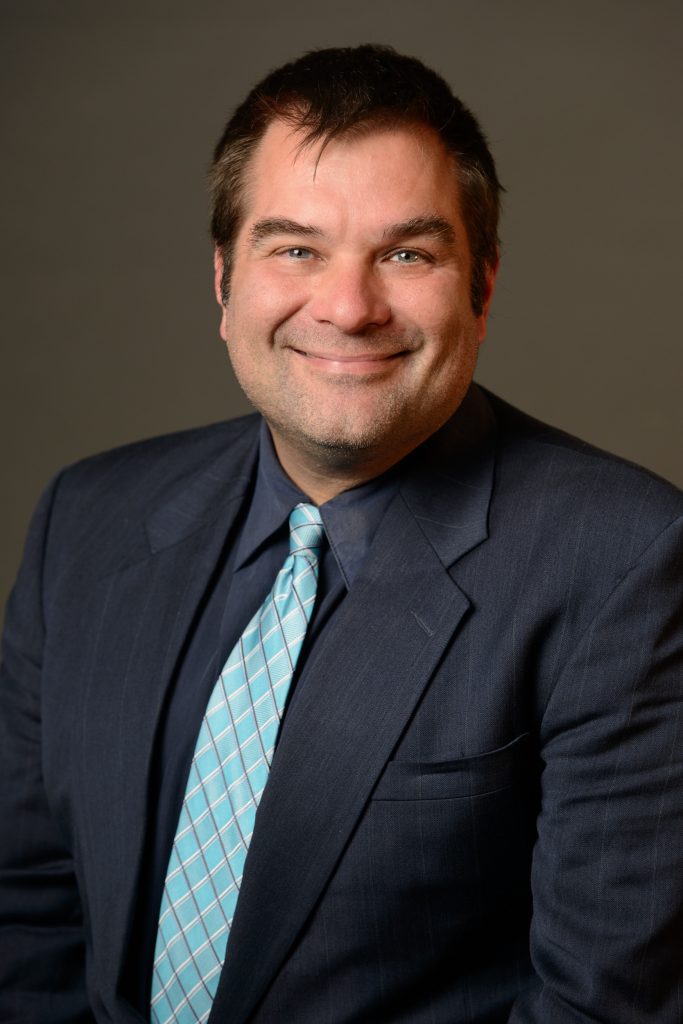
Dr. Eric Bush, Chief Medical Officer for Hospice of the Chesapeake and Chesapeake Supportive Care.
Somewhere along the way, the term “palliative care” picked up a scary reputation. Should a medical professional bring it up as a treatment option, many people think it means death is near.
Nothing could be further from the truth. Palliative care is all about living.
The World Health Organization defines palliative care is an approach that “improves the quality of life of patients and their families facing the problem associated with life-threatening illness, through the prevention and relief of suffering by means of early identification and impeccable assessment and treatment of pain and other problems, physical, psychosocial and spiritual.”
What does that mean in layperson terms? It means palliative care professionals like myself and my colleagues offer a support system to help patients to live actively with advanced, complex or chronic illnesses. As a team that can include but is not limited to a physician or a nurse practitioner and a social worker. We employ a biopsychosocial approach, addressing not just the physical, but also emotional, social and spiritual needs of patients and families, ensuring they have access to all the information and choices ahead.
If someone suggests you consider palliative care, do not panic and assume the worse. It can be the first step to better days.
We like to call it supportive care because it is patient-centered care. A consultation typically lasts from an hour to an hour and a half because we need time to ensure the patient and family have the information they need to make decisions about their care plan. Some of the goals of a consultation include:
- Build rapport and relationships with patients and family caregivers.
- Manage symptoms, distress, and functional status (for example, pain, breathing problems, fatigue, sleep disturbance, mood, nausea).
- Explore of understanding and education about illness and prognosis
- Clarify treatment goals.
- Assess and support coping needs.
- Assist with medical decision making.
- Coordinate with other care providers.

By helping the body, mind and spirit of a patient and their family, the Chesapeake Supportive Care team is focused on the quality, of life, no matter the age or the illness. It’s all about living.
Supportive care is a medical specialty
Consider supportive care as an additional specialty that is part of your larger healthcare plan. For example, someone with congestive heart failure (CHF) might have a primary care physician, cardiologist and pulmonologist on their team. As there is no cure for CHF, and a high probability for frequent hospital visits, it would be wise to have a palliative care provider on their team, too. With all the medications, therapies and other treatments that come with managing CHF, the supportive care team would work with the other providers to anticipate, prevent and treat suffering, including pain and other symptoms of illness. The goal would be to avoid hospitalizations for fluid build-up or difficulty breathing. It is supportive care that is focused on quality of life for those living with complex illness.
As a specialty, palliative care, or supportive care, is covered by most insurance plans. Patients can be seen on an outpatient basis, such as at a medical office, or wherever they call home.
Focusing on the whole person
Most importantly, being referred to supportive care does not necessarily mean you are near death. People with complex advanced illnesses such as chronic obstructive pulmonary disease, kidney failure and sickle cell disease can often live longer because the focus isn’t only on the disease, but the well-being of the whole person.
With supportive care, you can still receive curative treatment: You do not have to have a life-limiting diagnosis. Cancer patients can turn to palliative teams who often work with oncologists to make their journey for a cure simultaneously with a focus on quality of life.
If someone suggests you consider palliative care, do not panic and assume the worse. It can be the first step to better days. But if you can’t get past the “P” word, it’s okay to just call it supportive care.


